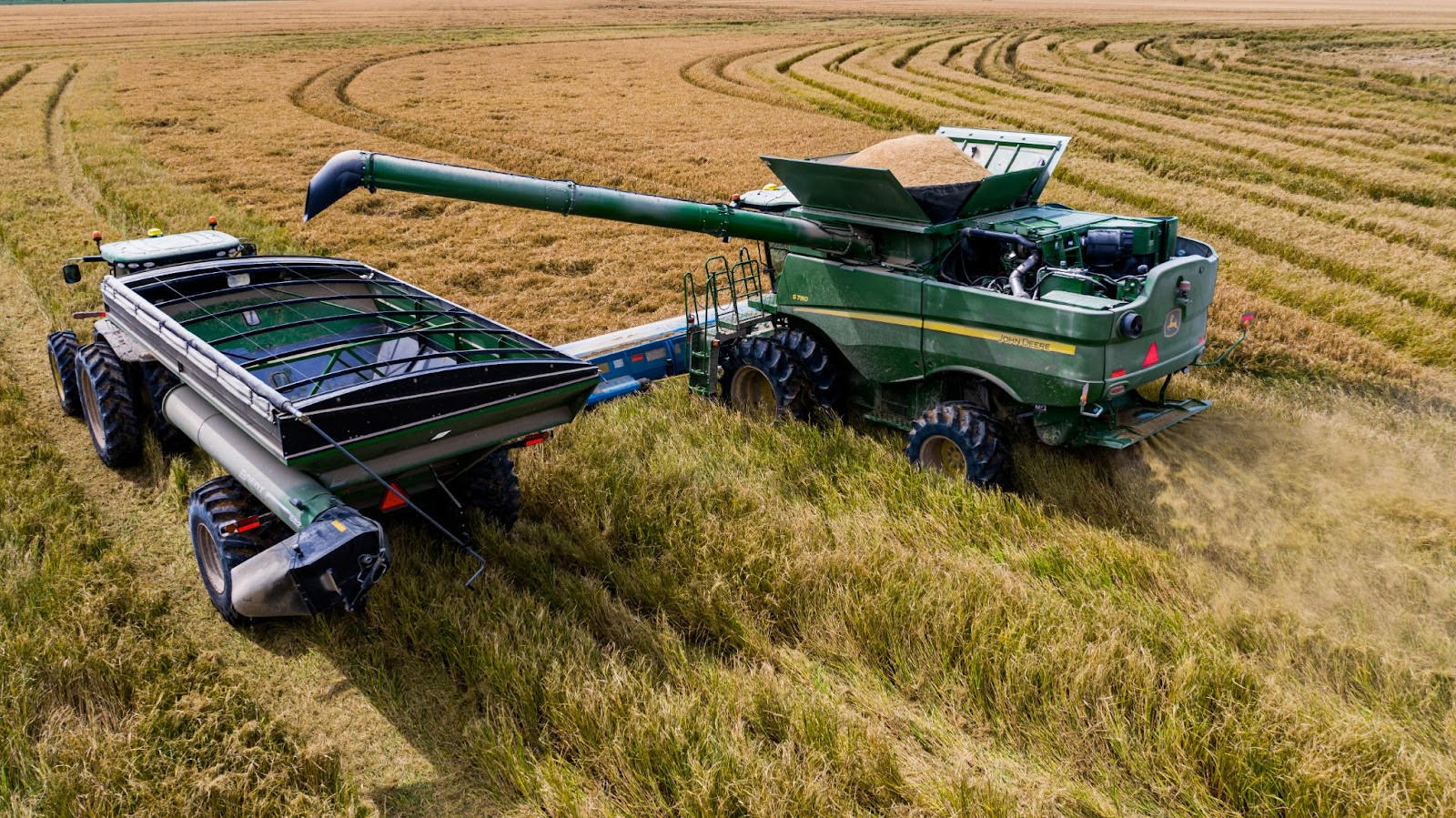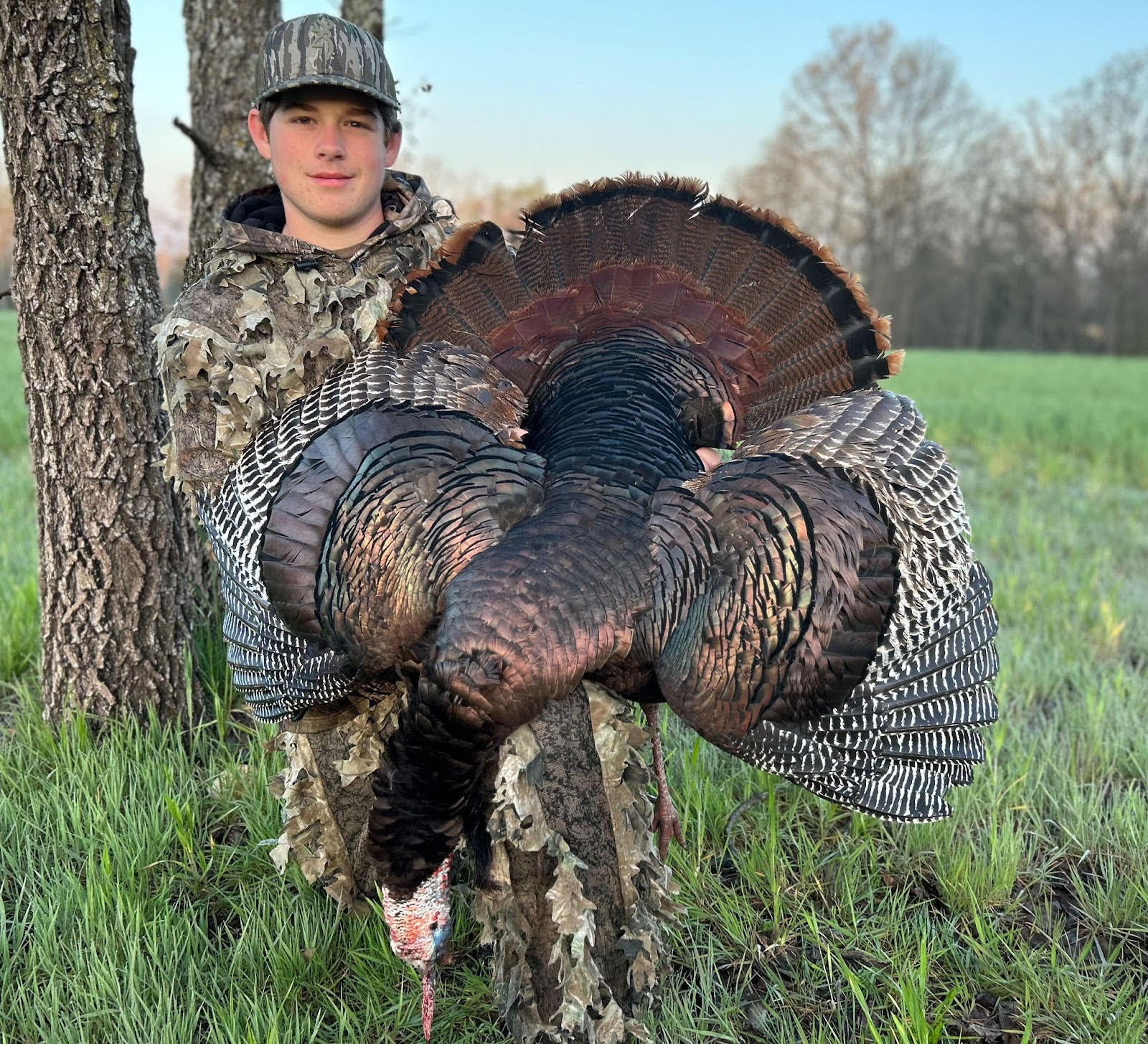AGFC powers up SWEPCO Lake with massive fish habitat project
ON 12-11-2019
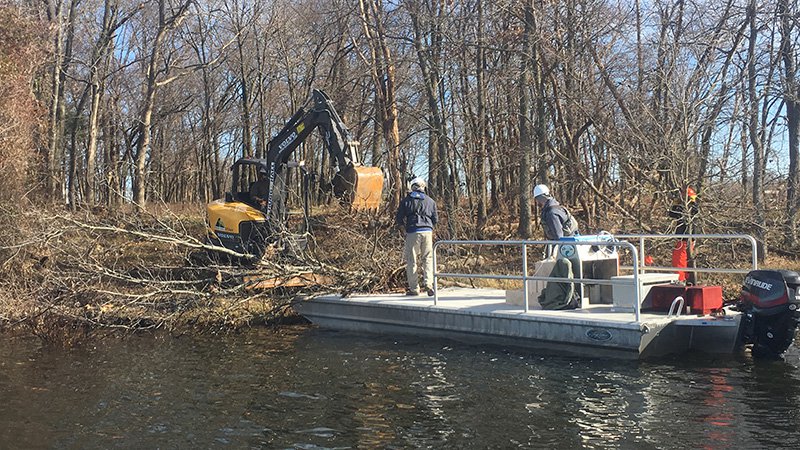
Dec. 11, 2019
Randy Zellers
Assistant Chief of Communications
SILOAM SPRINGS — During the last week, biologists and staff with the Arkansas Game and Fish Commission planted a literal forest of fish habitat under the surface of SWEPCO Lake in northwest Arkansas. Throughout the week, men and women cut, tied and sank nearly 500 mature hardwood trees into the lake to create habitat for bass, crappie and other sportfish in the 500-acre powerplant reservoir.
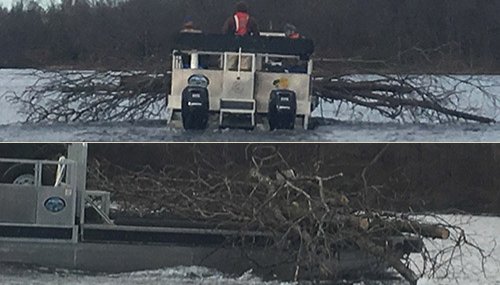
The trees were bunched together in groups of 6-12 to make 60 large fish attractor sites ranging in depths from 12- to 25-feet deep around the lake.
“We spread the attractors out to cover shallower flats, main lake points and edges of creek turns, where they would be the most likely to see use,” said Jon Stein, District Fisheries Supervisor in the AGFC Beaver Lake Regional Office. “Most of the trees used were elm, with some cherry and hickory trees mixed in, all of which should last a long time under the water.”
The trees were the result of Soutwestern Power Company, the owners Flint Creek Power Plant and the lake, working to improve the forest on its property.
“They worked with Hugh Lumpkin, one of the AGFC’s private lands biologists, on what they could do to improve the wildlife habitat and timber on the land right around the lake,” Stein said. “The woods were in need of thinning to get more sunlight on the forest floor for food-producing plants, and Hugh helped them with which trees to remove and increase that land’s productivity.”
Moving all those trees required a massive undertaking, and members of the AGFC’s Fisheries and Wildlife Management divisions rolled up their sleeves to get to work.
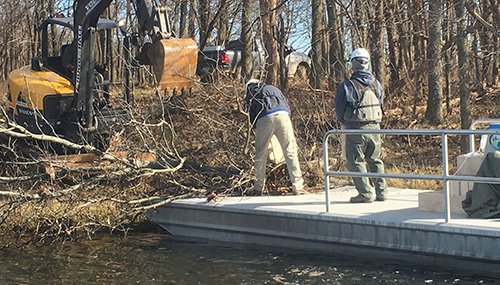
“Around 31 of our staff and 12 employees from the power plant all worked together in teams to make it happen,” Stein said. “Two excavators were rented to move trees to the shoreline, and seven different habitat barges worked to bring the bundles of trees to locations around the lake. We had five different crews going, either cutting trees with chainsaws, bundling up trees with cinder blocks to make them sink, or pulling the brush off into the lake. It was a huge production.”
AGFC fisheries biologists always are working to improve habitat on Arkansas lakes, but this is the first large-scale habitat project for a northwest Arkansas lake in many years. However, Stein is hopeful to see the same sort of participation in a future project of this scale at Beaver Lake, pending approval from the Army Corps of Engineers.
“Every district stays busy with daily work in their areas, and getting things coordinated to pull off a project of this size can be challenging, but the rewards are well worth the effort,” Stein said.
Although the primary purpose of fish attractors is to give anglers spots where their odds of catching fish go up, they also can play a role in the health of the fishery. According to Stein, small reservoirs, in particular, can see benefits from the increased cover added to the lake. Predator fish such as largemouth bass and crappie make use of the cover as ambush points to feed more effectively, and prey species such as shad and sunfish are drawn to the cover for protection. In massive lakes, the benefits may not be as apparent, but in lakes the size of SWEPCO, the added efficiency of feeding can increase growth rates and trophy potential.
“It’s hard to tell if this will have a major impact on the fishery, but these fish attractors should be excellent locations for anglers and fish to meet,” Stein said. “And we try to do everything we can to increase angler catch rates and satisfaction when possible.”
Although labeled as Lake Flint Creek on many maps, the 500-acre reservoir is known far and wide by the moniker “SWEPCO,” the acronym for Southwestern Electric Power Co., the owner of the lake and surrounding land. The reservoir serves as a water source to generate electric power, and the heated water that is discharged into the lake makes it play by different rules than most lakes in the state.
“The water will stay warm through most of the lake during some of the coldest days of the year,” Stein said. “This makes for an extremely long growing season for the fish and rapid growth compared to other lakes this far north.”
The temperature difference also means the habitat is suitable for Florida largemouth bass, and is the northernmost location the AGFC stocks the species of black bass that has more potential to grow to trophy size.
“The lake is very well known among local anglers, and receives many visitors from other parts of the state and other states, especially during winter,” Stein said. “When other Arkansas lakes have only a handful of anglers getting out in the cold, SWEPCO typically has a full parking lot. With the addition of this habitat, we hope that trend continues.”
Visit www.agfc.com/fishattractors to download the GPS coordinates of AGFC fish attractor locations throughout Arkansas, or visit www.agfc.com/maps to see where each attractor is located on an interactive map.
Recent News
Subscribe to Our Weekly Newsletter E-mails
Don’t miss another issue. Sign up now to receive the AGFC Wildlife Weekly Newsletter in your mailbox every Wednesday afternoon (Waterfowl Reports are published weekly during waterfowl season and periodically outside the season). Fishing Reports arrive on Thursdays. Fill in the following fields and hit submit. Thanks, and welcome!

